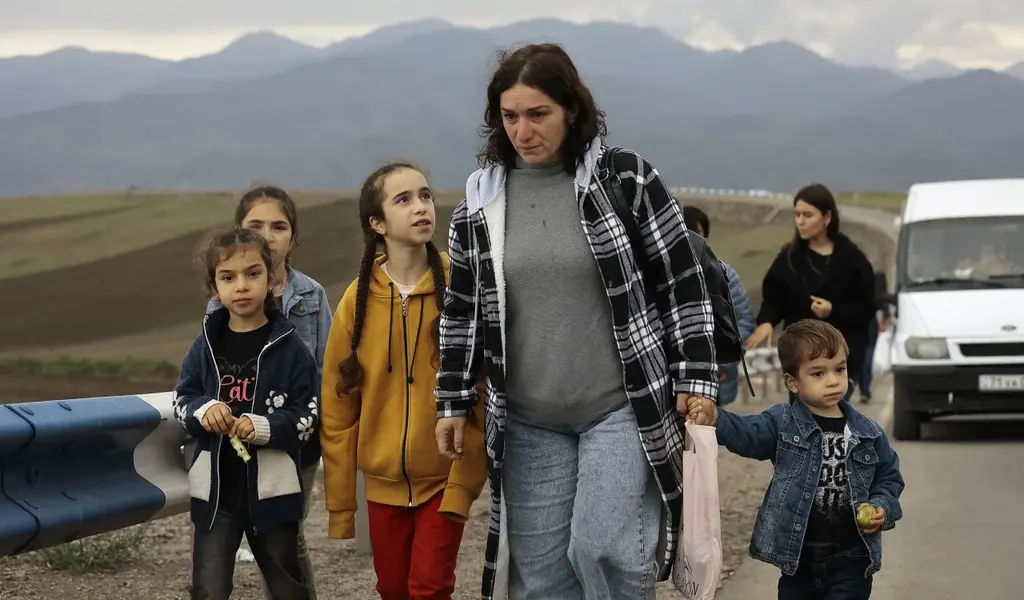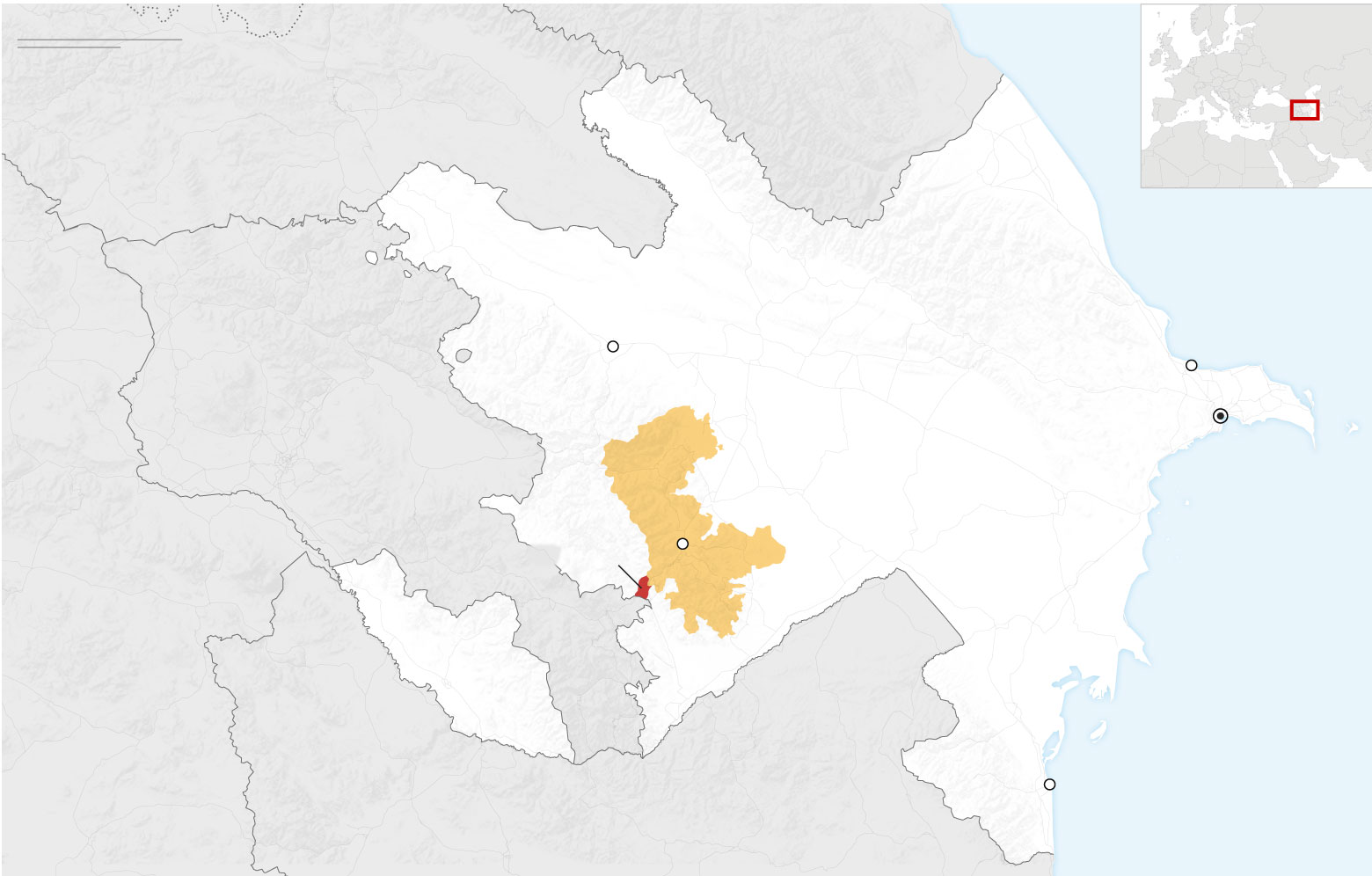News
Nagorno-Karabakh’s Self-Proclaimed Republic Announces Dissolution Effective From January 1st

(CTN News) – In a significant and somber announcement, Samvel Shahramanyan, the leader of the self-declared Republic of Nagorno-Karabakh, declared that the region would cease to exist from 1 January.
This announcement comes in the wake of the recent seizure of Nagorno-Karabakh by Azerbaijan, ending a three-decade-long Armenian control over the region.
The dissolution of state institutions raises critical questions about the future of the region and its displaced population. In this blog post, we delve into the background, implications, and potential challenges arising from this pivotal development.
Nagorno-Karabakh: Historical Background
The conflict over Nagorno-Karabakh is deeply rooted in history. While internationally recognized as part of Azerbaijan, Armenia took control of the region in the 1990s, following the collapse of the Soviet Union.
The ensuing decades were marked by intermittent violence and failed attempts at resolution.
The situation escalated dramatically in September 2020 when Azerbaijan, backed by Turkey, launched a military offensive that resulted in the recapture of significant portions of Nagorno-Karabakh.
This recent military action reshaped the political landscape of the region, ultimately leading to the dissolution of the self-declared republic.
Reasons Behind the Dissolution
Samvel Shahramanyan’s decision to dissolve the state of Nagorno-Karabakh was framed as a move to prioritize the physical security and vital interests of the region’s population.
He cited Azerbaijan’s agreement to ensure “free, voluntary, and unhindered travel” for residents as a factor in this decision.
It is essential to understand that this dissolution was not a voluntary act of self-determination but rather a consequence of the recent military takeover.
The Humanitarian Crisis
One of the most immediate and concerning consequences of the dissolution of Nagorno-Karabakh is the humanitarian crisis. More than half of the region’s ethnic Armenian population has fled their homes, fearing for their safety.
This mass exodus raises critical questions about the fate of the displaced people, their rights, and their ability to return to their homes.
Armenia’s Prime Minister, Nikol Pashinyan, expressed concerns about the potential for “ethnic cleansing” in the region, emphasizing the urgency of international intervention.
International Response
International reactions to the dissolution of Nagorno-Karabakh have been mixed. Western governments have called for Azerbaijan to allow international observers into the region to monitor the treatment of the local population.
However, access has not yet been granted, leaving the international community with limited tools to influence the situation on the ground.
Pashinyan has called for more significant international action and warned that condemnations without substantive political and legal decisions are insufficient.
Legal Implications
The dissolution of Nagorno-Karabakh raises complex legal questions. While the region is internationally recognized as part of Azerbaijan, its de facto control by Armenia for decades has created a unique set of circumstances.
The sudden shift in control and dissolution of state institutions could have far-reaching legal implications, including property rights, citizenship, and the status of the displaced population.
These legal complexities will require careful consideration and resolution in the coming months.
Arrest of Former Leader
In a further development, Ruben Vardanyan, a former leader of the self-declared Republic of Nagorno-Karabakh, has been arrested by Azerbaijani authorities.
He faces charges that include financing terrorism. Vardanyan’s arrest underscores the legal challenges faced by former officials of the region and adds another layer of complexity to the situation.
Armenia’s Humanitarian Response
Despite the challenges posed by the mass displacement of ethnic Armenians from Nagorno-Karabakh, the Armenian authorities have shown determination in supporting their compatriots.
Aid efforts have intensified, with local hotels offering free rooms, and Armenians across the country offering housing to refugees.
This grassroots response demonstrates the solidarity and resilience of the Armenian people during this challenging period.
Conclusion
The dissolution of the self-declared Republic of Nagorno-Karabakh marks a significant turning point in the complex and long-standing conflict over the region.
The humanitarian crisis, legal implications, and international response are just some of the critical aspects that need to be addressed in the wake of this development.
As we move forward, it is essential to keep a close watch on the evolving situation and to work towards a peaceful resolution that ensures the rights and safety of all those affected by this conflict.





























